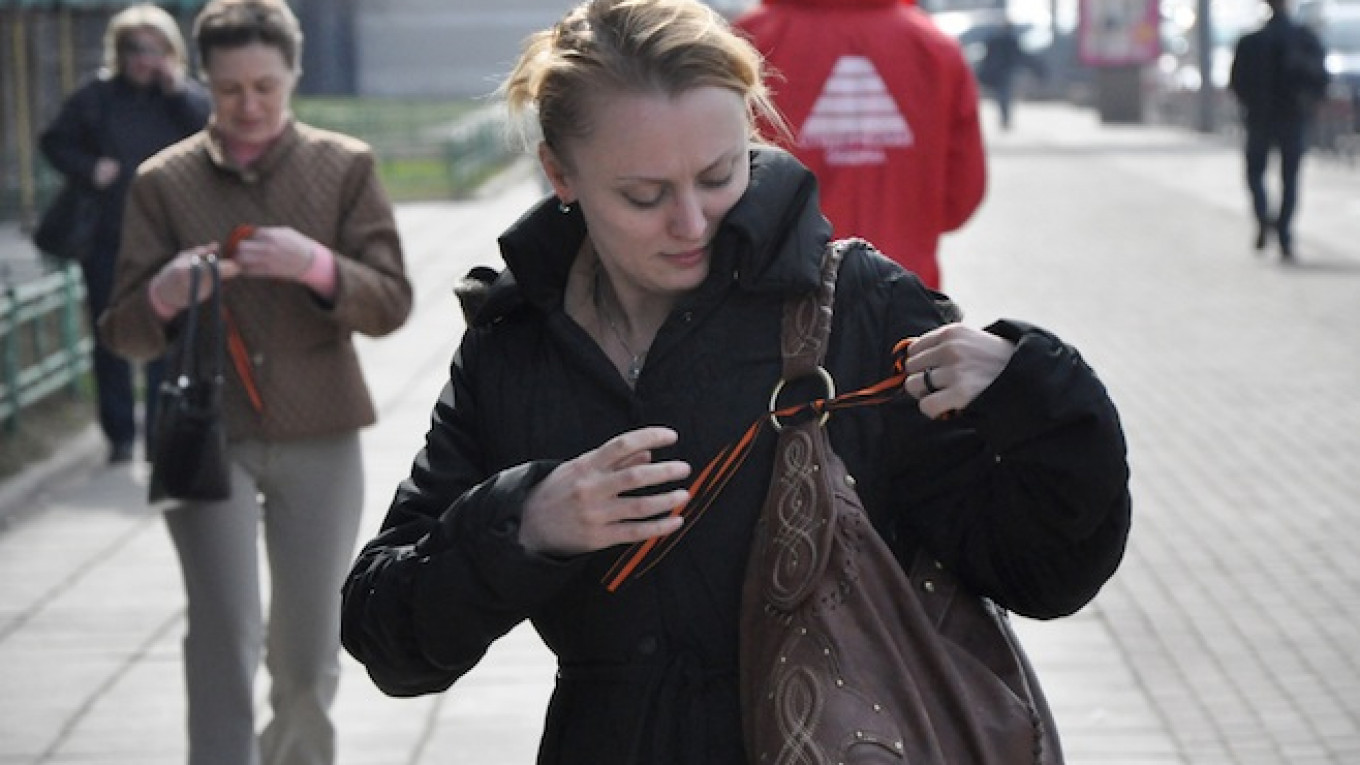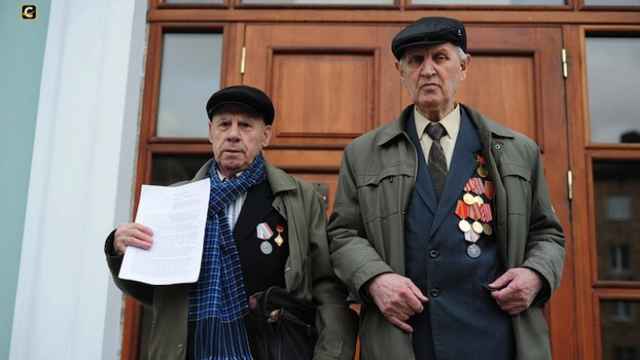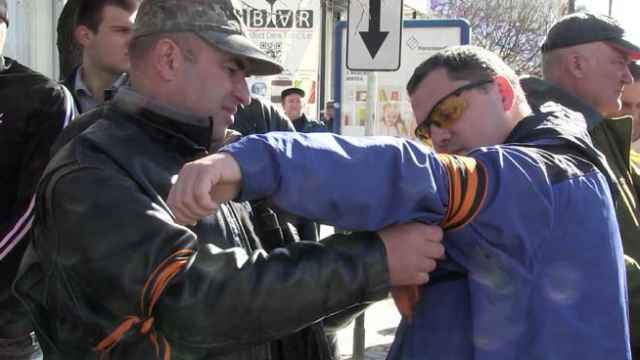A World War II veterans' association wants the government to regulate the use of the black-and-orange St. George's ribbon, as the symbol is increasingly becoming a popular accessory and advertising gimmick, showing up on everything from dog collars to vodka bottles.
The veterans' association in the Ural Mountains region of Sverdlovsk plans to appeal to the State Duma to have legislation drafted that will give specific regulations on how the ribbon — a symbol of Russia's military valor — can be produced and used, the association's head Yuri Sudakov said, REN TV reported Tuesday.
The proposed bill should also list penalties for business that seek to profit from the patriotic ribbon either by selling it or using it for advertisement, the report said.
“It should be in the law: Which structures may produce those ribbons, who may buy them ‚— up to determining where it may be worn,” Sudakov was quoted as saying.
The veteran's appeal followed several rounds of outcry in Russia over the flippant use of the St. George ribbon as the country's May 9 celebrations of the 70th anniversary of the allied victory in World War II grow near. The ribbon — used as a military decoration since the 18th century — has also recently been associated with Moscow-backed separatists in eastern Ukraine.
For many Russians, the St. George's ribbon has become a trendy accessory, attached to handbags and dog collars as well as, more piously, to lapels. The ribbons also appear on vodka bottles, chocolate boxes and packages of dumplings.
The patriotic — or commercial — upsurge has even reached a sex shop in the Ural Mountains, “Kazanova 69,” which has decorated its price tags with a picture of Russia's Order of the Great Patriotic War, according to photos posted by online news portal Znak.com last week.
“Kazanova 69” — located in the Sverlovsk region capital Yekaterinburg, the same city where the veterans' association seeking regulations is based — removed the pictures from its price tags after learning that the decoration has “offended somebody,” its commercial director Dmitry Shchepin said, Znak.com reported.
Other stores have had to deal with the fallout of the careless use of black and orange colors on its goods. A Globus hypermarket in the Moscow suburb of Korolyov had to recall a consignment of flip-flops in orange and black after the region's trade regulator threatened to investigate, the Moscow region's administration said on its website.
The store has apologized and blamed its insensitive color choice on a “marketing error of its buyers,” the regional retail and services chief, Vladimir Posazhennikov, was quoted as saying.
A Message from The Moscow Times:
Dear readers,
We are facing unprecedented challenges. Russia's Prosecutor General's Office has designated The Moscow Times as an "undesirable" organization, criminalizing our work and putting our staff at risk of prosecution. This follows our earlier unjust labeling as a "foreign agent."
These actions are direct attempts to silence independent journalism in Russia. The authorities claim our work "discredits the decisions of the Russian leadership." We see things differently: we strive to provide accurate, unbiased reporting on Russia.
We, the journalists of The Moscow Times, refuse to be silenced. But to continue our work, we need your help.
Your support, no matter how small, makes a world of difference. If you can, please support us monthly starting from just $2. It's quick to set up, and every contribution makes a significant impact.
By supporting The Moscow Times, you're defending open, independent journalism in the face of repression. Thank you for standing with us.
Remind me later.






